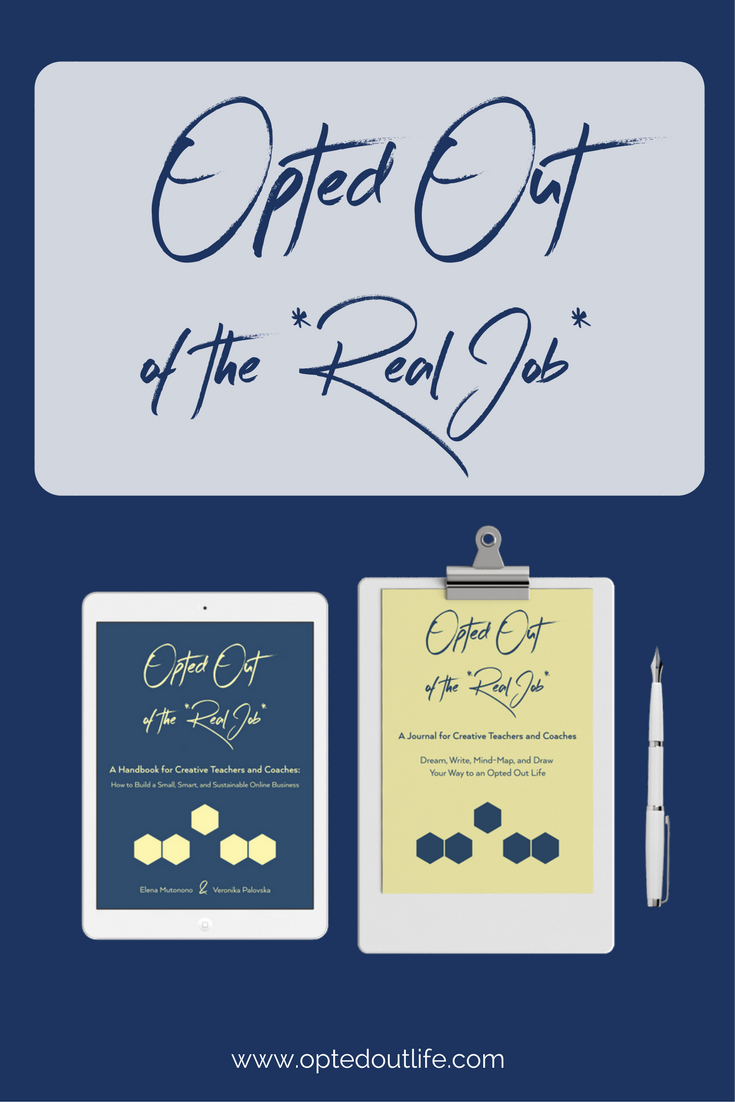“These people won’t pay me more than $25 an hour. Why would they? There are many others who charge less and do the same kind of stuff.”
In the past several weeks, two of my clients have sold 4-figure packages. These are the same people who just three years ago struggled to raise their price from $20 to $25 an hour.
Many of us want to have stunning results in our businesses, brands that people love, sold out programs, high-ticket sales, higher volume of sales, loyal fans that work better than a well-targeted ad, and money in our account.
Yet the journey there scares us, forcing us to take shortcuts, giving up on our dreams or projecting the future that we dread — which Brene Brown called “rehearsing tragedy.” I say we need to break away from the habit of dooming ourselves to things we don’t want.
In this post I will look closer at 7 of the most common fixed mindset sayings I hear from online language teachers all the time and share strategies to help you overcome them. I’ll also feature some books to help you cultivate a growth mindset.
1. “Nobody will pay me more.”
Increased pricing comes from the awareness of how your brand is different, the courage to stick to the value you bring to your clients and the confidence to know that the right client will get the results.
Just changing the price tag from $20 to $200 per lesson won’t work. If your awareness, presentation and packaging remains the same, then the client will go around looking for someone else.
Another important step is repackaging what you offer, reducing the number of hours the client spends with you and increasing the time they work on their own. I walk you through the entire process in my workshop. If you can’t charge more, start charging the same for less of your work.
A book to inspire you: The Right Story by Bernadette Jiwa
2. “I’ve done everything I could for 2 months, and nothing happened.”
Have you really done everything you could? Chances are you haven’t. You’ve done everything you thought of but not absolutely everything you could. And 2 months is a short timespan to assess anything, even if you’re doing things right.
There’s no shortcut to developing patience and resilience. They mature with time. Don’t be hard on yourself and give yourself the time you need to get where you want to be.
A book to inspire you: Keep Going: 10 Ways to Stay Creative in Good Times and Bad by Austin Kleon
3. “This is what I’ve been doing all my life so I can’t change it.”
You may have been doing this all your life but it doesn’t mean you can’t do anything else. Are you 95 years old and dying? If not, then probably there are things you can still change. If Ivy Bean could learn how to use Twitter at the age of 104, you can definitely change.
Look at what you can do and consider your work as a rough draft. Enjoy the journey, not the result. One day you’ll get there and realize that it was the journey that you loved after all. Be patient.
A book to inspire you: Things are What you Make of Them by Adam J. Kurtz
4. “But my students like it when I teach them this so I don’t think I can offer them anything else.”
When online language teachers first hear about working smarter (as in, not teaching via Skype and using automated tools to sell stuff) their first reaction is, “Well, this ain’t happening to me.” (OK, with better grammar maybe…)
When I give them examples they say things like,
“Oh, it worked for you because this student wanted this service, and mine don’t.”
“Oh, it worked for Elfin because she teaches Italian, and there’s more demand and less competition.”
“Oh, it worked for Veronika because she doesn’t really teach English but now focuses on design.”
And so on.
But just think that all of these people at one point were where you are today: exhausted, scared to charge more than “the going rate,” burnt out and passionless. Look at where they are now and just imagine that it could happen to you too.
When I ran my workshop a few months ago Jessica couldn’t see how her clients would agree to do a non-1:1 program. But the idea found some fertile ground in her mind, grew some roots and prompted her to create and sell a program to her client.
Don’t rush to say “no.” Ask yourself, “Why not?”
A book to inspire you: My Friend Fear by Meera Lee Patel
5. “But I believe this is the only (and the most effective) way to learn a language.”
Really? I was a part of a discussion like that on Facebook a few weeks ago and I could see how easily we get trapped just because we’re not exposed to anything else.
Online language teachers hang out with online language teachers who use the same model to get themselves burned out, who teach similar people that are used to being taught only one way. Online language teachers who learn from trainers who have never tried anything other than traditional 1:1 lessons.
How can we believe that something else is possible? So now that you’ve read this, think of all the possible ways you have learned, at different stages in life and under different circumstances.
Why does your client have to learn the same way? It can’t be that 1:1 (or group lessons) are the only effective way. It’s the way we think about a certain format that makes it effective or not.
A book to inspire you: Flowers in the Frost: the Untold Stories of Online Teaching by moi
6. “Why is nobody reading/talking about my work?”
We go online and we can’t wait for people to talk about us. Some coach said in her training that instead of connecting with your potential clients on Instagram by engaging in their discussions, you should only focus on your account. Your stories. Your value. You-you-you.
It sounds great to only focus on you (and people who will bump into your account by accident) but in reality you can only succeed when you care for others first. Look for those who are your ideal clients. Support them by talking about their work. Share the love. Stop saying “sharing is caring” when you don’t care about others first.
You will see how things change when you care about others. If nothing else you’ll stop this nonsense pity-party where you’re crying to everyone how you hate social media because nobody is there to follow you. Lead by example.
A book to inspire you: You’re Going to Survive by Alexandra Franzen
7. “I already took a course/read a book about this. Is there anything new I can learn?”
“But I know everything about sales,” an online teacher tells me. “I took a course and worked with a sales coach.”
“Can you share what you’re selling?”
“Well, I haven’t created anything yet, but I’m working on it.”
I guess I “know” French in the same way because I can say merci and j’adore. I also know the principles of learning the language and even follow a dozen French teachers online. But does it make me a fluent speaker?
How then are sales different from anything else? There’s no end to learning, especially in the online world. What we know today will change tomorrow. Learning is endless, and mastery is achieved through making mistakes.
Learning is endless, and mastery is achieved through making mistakes.Click To TweetIf you want to learn to live with mistakes, take a simple drawing class. You’ll make mistakes right away, but drawing will teach you to look at your mistakes as a new possibility.
A book to inspire you: The Book of Mistakes by Corinne Luyken
Conclusion
I mentioned in the beginning that the process of becoming someone new doesn’t happen in an environment where everyone thinks like the old you. Challenge yourself by spending time with people who see possibility in everything, who are curious and adventurous, who challenge you to be what you never thought you could be.
Think of who you are today. The good things that have happened to you are all thanks to someone who believed you can grow to be this person. Now imagine where you want to be tomorrow and join a group of people who believes you can be that. Maybe you can join us?
The post was updated in January, 2022.




 Welcome to my nook where *Big Magic* happens. My name is Elena Mutonono, I help small business owners package their services as digital products and sell them online. I want you to work smarter, not harder. Increase your impact beyond your current face-to-face clients. Grow your business as you reach more people all over the world.
Welcome to my nook where *Big Magic* happens. My name is Elena Mutonono, I help small business owners package their services as digital products and sell them online. I want you to work smarter, not harder. Increase your impact beyond your current face-to-face clients. Grow your business as you reach more people all over the world.








Hi Elena
I like this blog post. Encouraging and I like the list of books you have suggested. By the way, your blog presentation itself is beautiful.
Thank you, Jeanne! I appreciate your comments as always <3 Let me know if you've read any of the books yet!